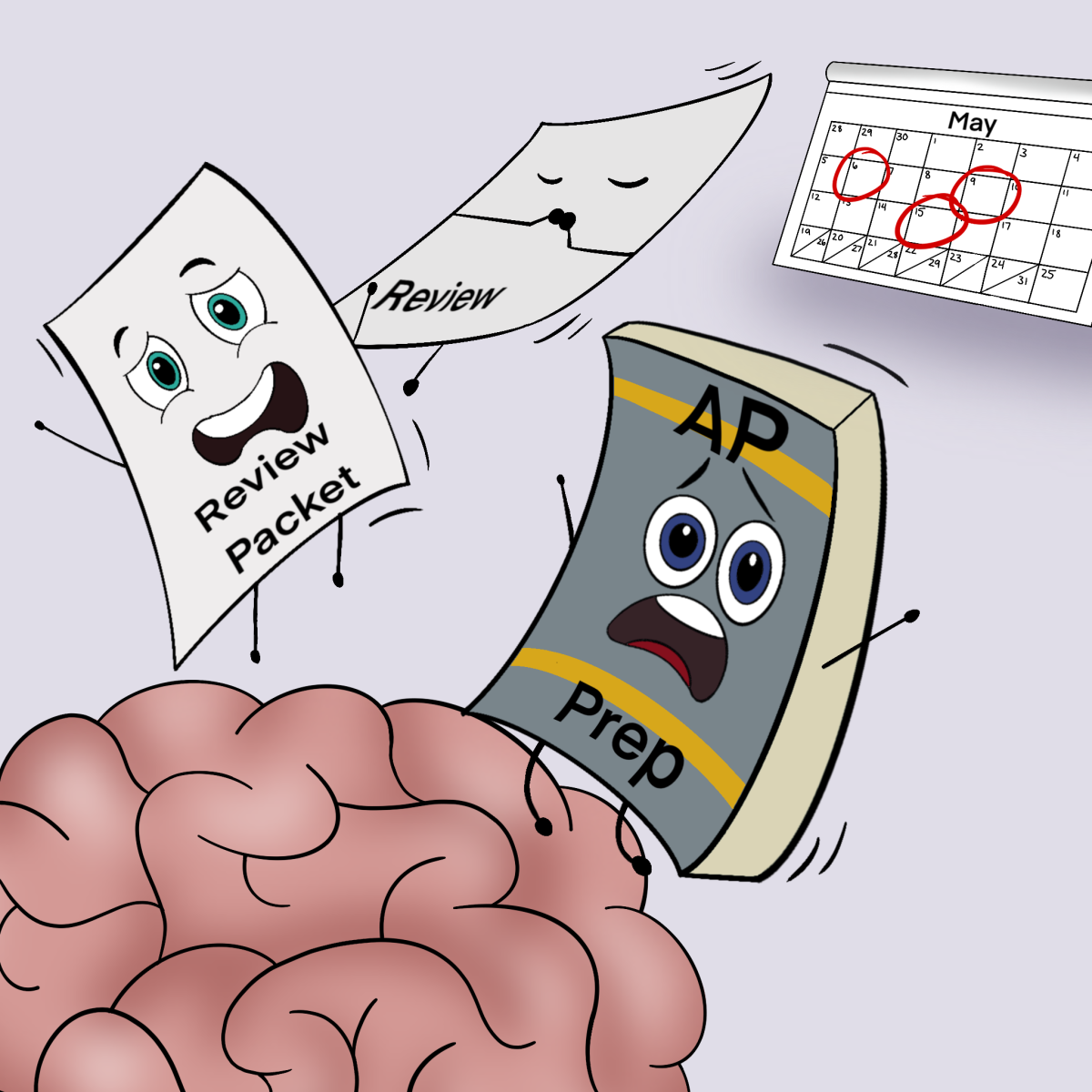Summer may be close but AP exams are closer, and stress is running high. With teachers beginning preparation and introducing many packets of review, the end of the school year may not exactly feel like smooth sailing. Ultimately, it’s up to the students on how they approach studying for the exams. Some may prioritize those review packets and take the time to go back all the way to August’s learning material, and some may simply skim previous chapters in their textbooks. While some students only take one AP class, others take six, and the strategy to earn a 5 on the exam seems to be up to each student.
Junior Maxson Cook, who takes five APs out of his seven classes, ranked his classes from hardest to easiest, which is how he decided which APs to prioritize for studying: “AP Chemistry, AP Physics, AP US History, AP Lang, and AP Calculus BC.” Because Chem and Physics are his hardest classes, he has already started studying, but “does not plan on studying for History, Lang, or Calc until much later.” Since Calc is his easiest AP, Cook only plans on studying for “one day” so that he can prioritize chem and his harder classes. Expecting 4s and 5s on all of them, Cook exemplifies confidence in his studying approach.
In terms of how Cook is studying, he “spends a lot of time during academies” and “uses the textbook and videos online” to read and review everything throughout the year. Some of his teachers, such as AP US History teacher Lisa Herzig, hold academies for review periods, which Cook noted as being “super helpful”, however for chemistry and physics, he will simply be “praying.”
Senior Mia Lawrence takes four APs this year: AP Calculus BC, AP Statistics, AP Biology, and AP Computer Science. Lawrence commented that her main tactic for studying is “using the textbook and the study guide packets” but however, since she has multiple to study for, she will “set aside time periods dedicated to each subject” over the next few weeks before the exams to ensure that she is ready for all of them.
Senior Abigail Chen takes six AP classes this year, which is one more than she took her junior year. Chen said her hardest AP class is “probably AP Chem” and despite not hearing much about the exam, has a feeling it will be “one of the harder AP tests.” Chen usually studies for her STEM APs by “splitting them up into each unit” and then for each unit, does a practice test to see how many she gets wrong, and finally reviews that material. She stated, “in summary, it’s just a lot of practice problems.”
Moreover, despite having six exams to study for, Chen noted that because she’s a senior, she’s “less stressed than last year”, so will “probably start studying at the end of April.” However, her plan is to “prioritize AP Chem because it is her hardest AP,” and then for the APs she feels more confident in, she doesn’t plan on studying that much. For most students, the main studying tactic to earn a 5 is a cycle of reviewing and doing practice problems until they feel confident enough to take the exam.



